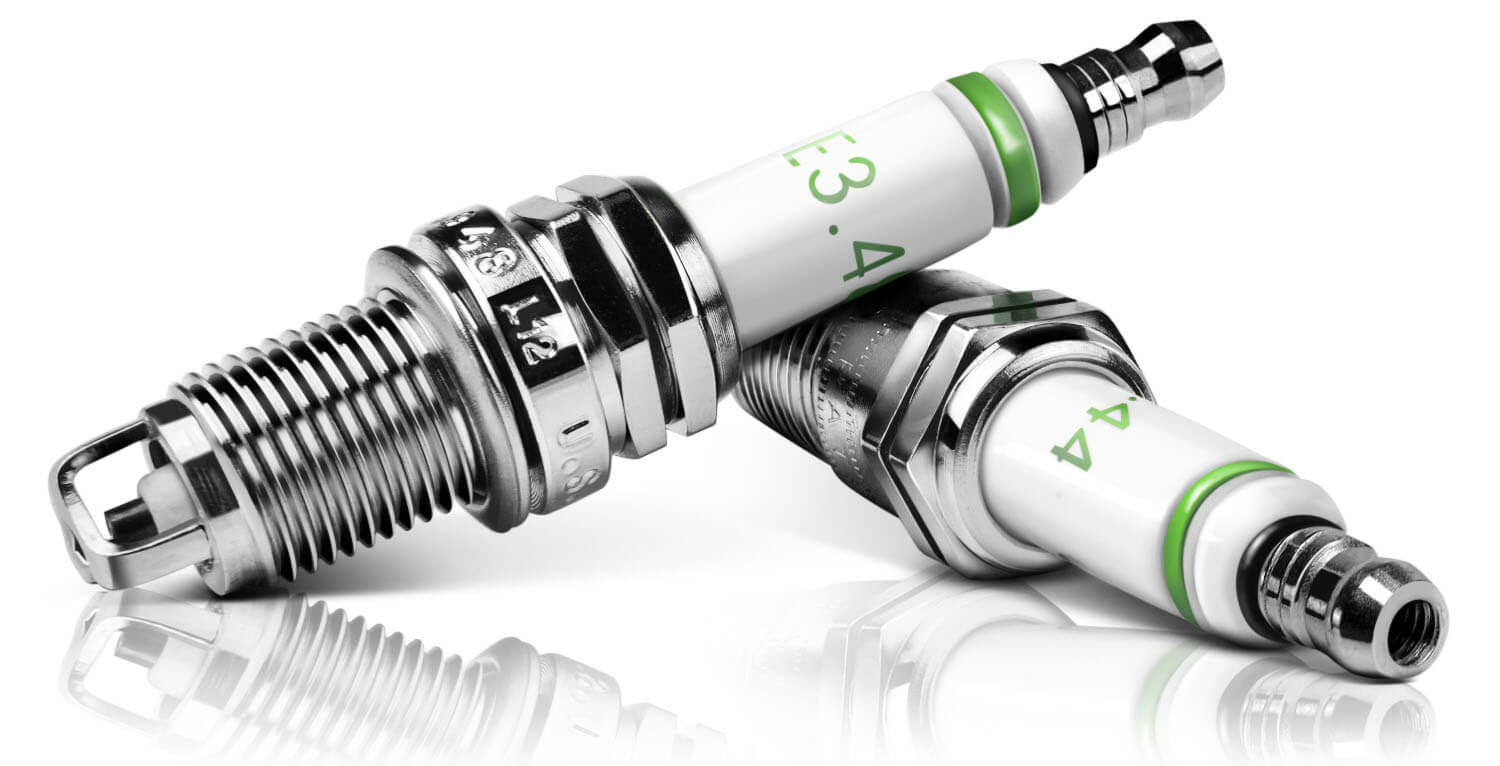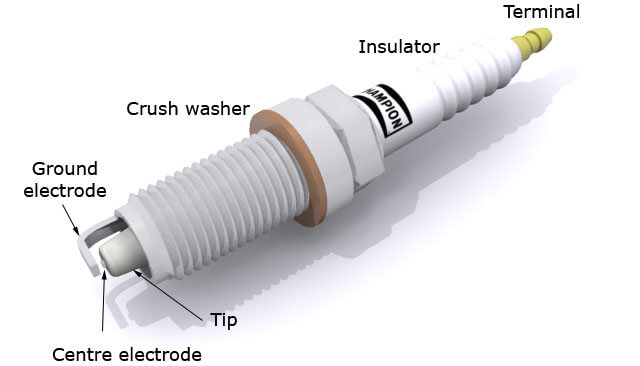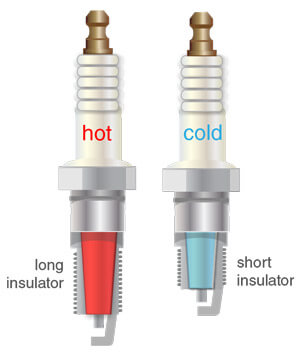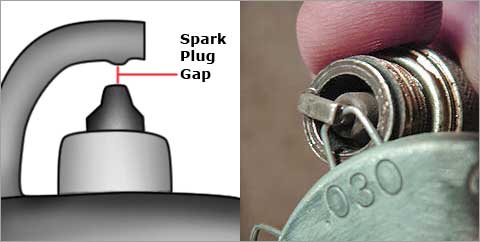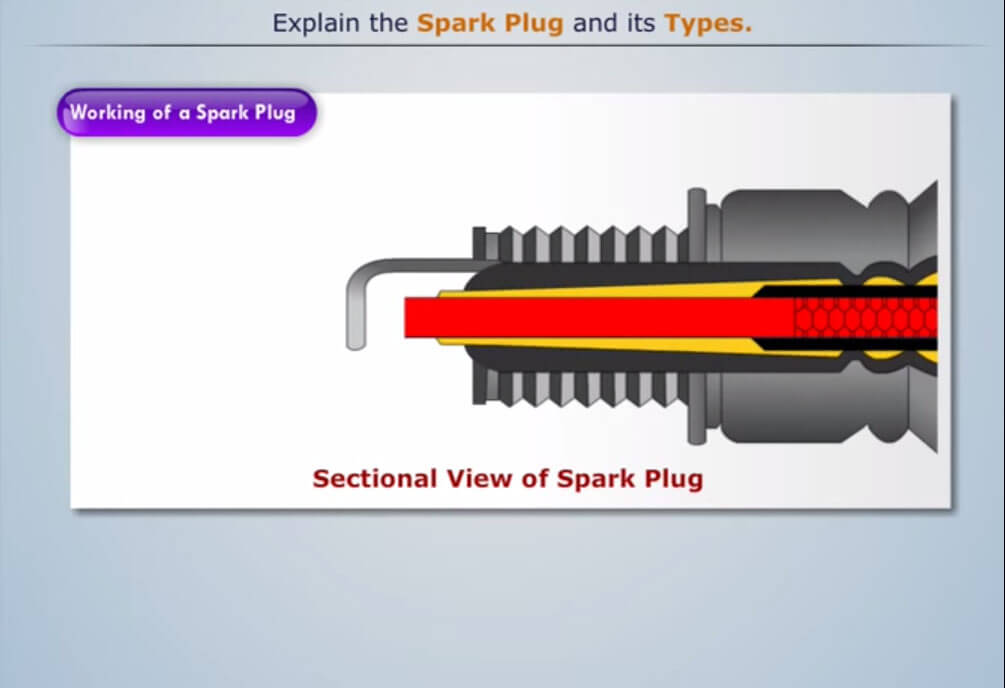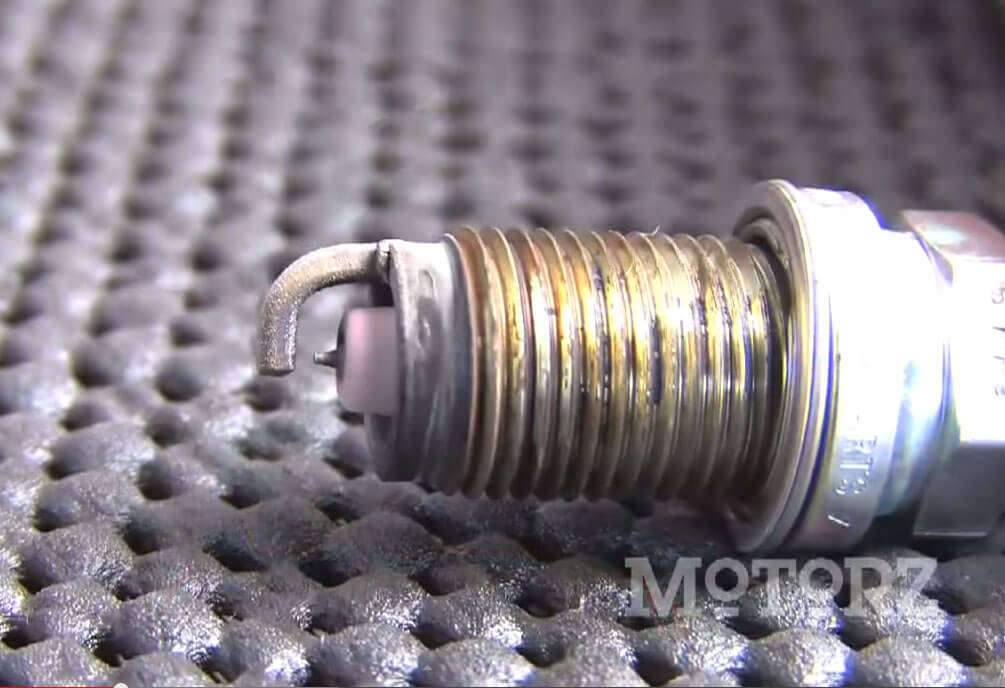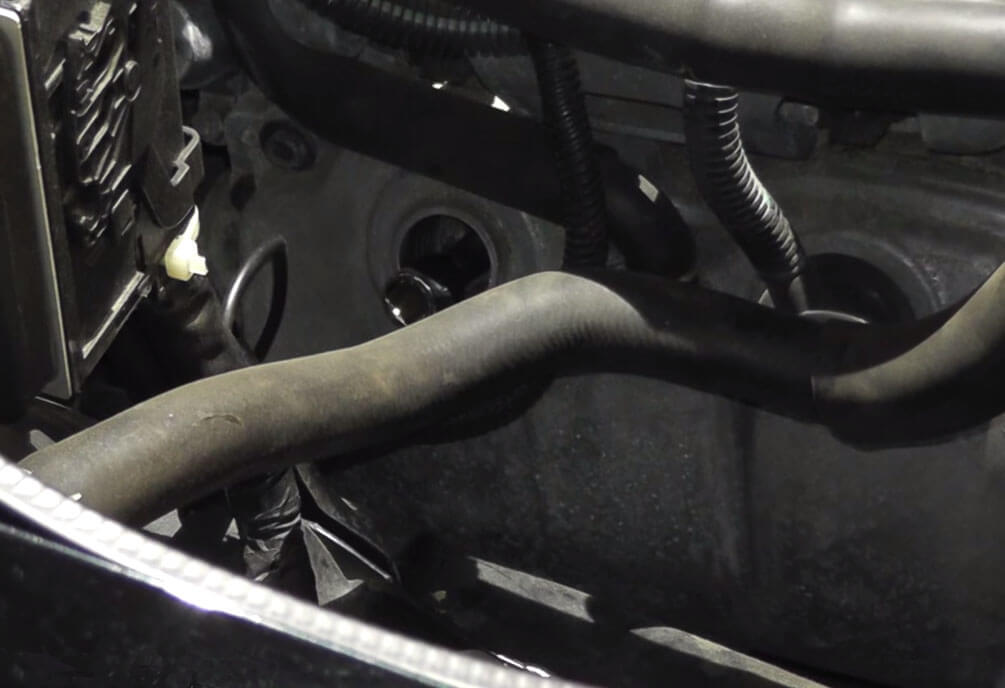Now, when the question What do spark plugs do is answered let's take a closer look at spark plug tune-up and how it impacts the overall vehicle performance.
What is the Best Spark Plug
In most cases, it is not until the engine is modified, or the compression is raised significantly, that stock ignition systems and spark plugs begin to show signs of being inadequate. At this point, a variety of factors determine what is the best spark plug for a particular configuration.
One of the most important aspects of a spark plug is its heat range, which refers to the rate at which heat is drawn away from the spark plug's central electrode. A spark plug with a short central electrode is a cold spark plug because heat has a short distance to travel to the water jacket in the cylinder head. A spark plug with a long central electrode is a hot spark plug because the heat takes longer to dissipate into the water jacket.
Spark Plug Heat Range
What makes the heat range of the spark plug available important is the reliability and longevity of the spark plug. Too hot spark plug will fracture due to excessive heat and, more critically, will become a hot spot in the combustion chamber that will cause pre-ignition and detonation, sooner rather than later.
However, a certain amount of heat is required to prevent the spark plug from fouling. A cold spark plug will be prone to carbon deposits and fouling and once the sparkplug is fouled, it will become less effective and its spark quality will tail off. Therefore, it is best to use a spark plug that is hot enough to prevent fouling, but is not so hot that it will fracture or become a hot spot.
As you probably realized already, different driving conditions that result in different temperatures in the combustion chamber will require spark plugs of different heat ranges. Fortunately the best spark plug that meets most driving conditions for a stock production car has already been identified by the manufacturer. However, the situation is different for modified cars, where the difference in driving conditions will be more extreme.
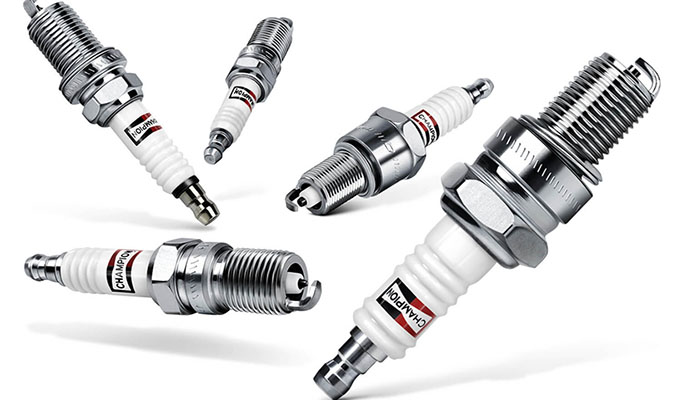
What Spark Plugs Do I Need?
How do you know which is the best spark plug to buy? To determine what type of spark plugs you need, you need to test your current spark plug. On modified cars you can check if you are using performance spark plugs of the correct heat range by inspecting the spark plugs after driving in different conditions, such as stop-starting, cruising, and full throttle racing. After driving the car under one driving condition, remove and inspect those car parts. If the spark plug electrodes are covered by soft sooty black deposits, then the spark plug is too cold. However, the soft sooty black deposits can also indicate that your air/fuel mixture is too rich; and if the deposits are moist, it means that oil is finding its way into the combustion chamber. If the porcelain insulator of the central electrode is white or brittle, and/or there is excessive erosion of the electrodes, then the spark plug is too hot; though this can also be an indication that your ignition timing is advanced too far, that you air/fuel mixture is too lean, or that there is a leak on your air intake manifold. If the spark plug electrodes exhibit grayish to light brownish deposits then spark plug is of the correct heat range.
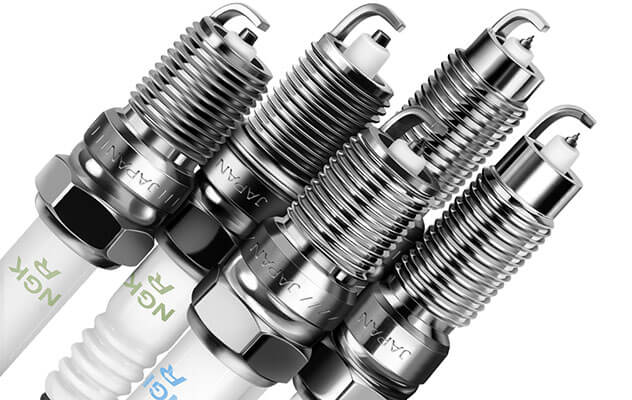
After testing your spark plug, let's return to the question you've asked yourself – What Type of Spark Plugs Do I Need? Of course, if the spark plug is too hot, you need to change to a spark plug with the lower heat range, and if the spark plug is too cold, you need to change to a spark plug with the hotter heat range. Anytime that you change to spark plugs of a different heat range, you must test all driving conditions again to ensure that the spark plug is appropriate for all conditions. In our previous section we looked at the spark plug heat range and determined what spark plugs you need in terms of the most appropriate heat range for your particular engine. Now it's time to turn to the spark plug gap.
What Is The Spark Plug Gap?
The electrode gap of a spark plug dictates the spark magnitude. An incorrect electrode gap may affect engine performance as the spark magnitude may be insufficient to ensure complete combustion of the air-fuel mixture.
Ironically, the car manufacturer's recommended spark plug gap is not optimal! The recommended spark plug gap is designed to be adequate for cold starting and smooth driving on a car that is in need of an engine tune up. Changing the electrode gap is called a spark plug gapping. If you drive your car normally and tune the engine regularly, you can increase the spark plug gap by about 0.010" for better performance and better fuel economy. However, if you drive at full throttle most of the time, you should reduce the gap by about 0.010" for better performance. Ultimately, you'd need to run your car on a dynamometer to find the best spark plug gap, and the right ignition timing for your engine.
Gapping spark plugs, remember that when you increase the spark plug gap you need more voltage from the ignition coil to create a spark across the spark plug gap. We'll discuss ignition voltage at a later stage. When a greater voltage is required to create a spark, cold starting and firing fouled spark plugs become more difficult. Therefore you should ensure that your secondary, high-tension ignition wiring is at least 8 mm in diameter, and that it is always clean, dry and in peak condition.
Where To Buy Spark Plugs
There are few choices to make when buying a spark plug, including brand, spark plug type and materials it is made from. Choosing a right vendor is an important step as well. Buying spark plugs from authorized dealers is a great way to protect yourself from wasting money and you vehicle from being damaged by a low-quality or nor original product. So choose your new spark plug carefully, buy from reliable retailer, and if you're fond of online shopping and don't want your choice to be limited to a tiny stock of the local store, check out Performance Spark Plugs for Cars & Trucks at CARiD.com!
